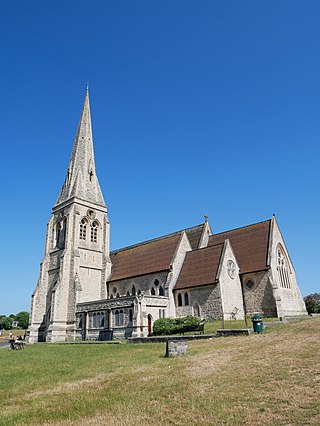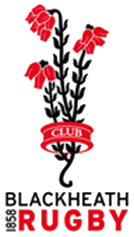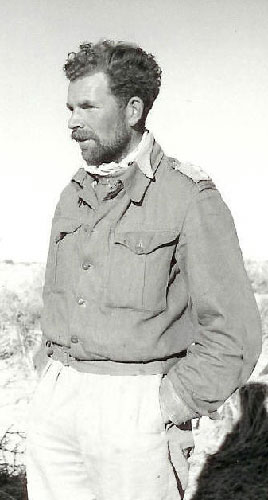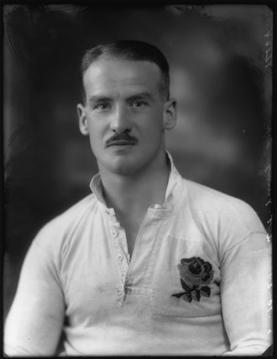
Blackheath is an area in Southeast London, straddling the border of the Royal Borough of Greenwich and the London Borough of Lewisham. Historically within the county of Kent, it is located 1-mile (1.6 km) northeast of Lewisham, 1.5 miles (2.4 km) south of Greenwich and 6.4 miles (10.3 km) southeast of Charing Cross, the traditional centre of London.

Newport Rugby Football Club is a Welsh rugby union club based in the city of Newport, Wales. They presently play in the Welsh Premier Division. Until 2021 Newport RFC were based at Rodney Parade situated on the east bank of the River Usk.

Blackheath Football Club is a rugby union club based in Well Hall, Eltham, in south-east London.

William Owen Chadwick was a British Anglican priest, academic, rugby international, writer and prominent historian of Christianity. As a leading academic, Chadwick became Dixie Professor of Ecclesiastical History in 1958, serving until 1968, and from 1968 to 1983 was Regius Professor of History. Chadwick was elected master of Selwyn College, Cambridge, and served from 1956 to 1983.
John Le Fleming was an English sportsman who played rugby union for England and first-class cricket for Kent County Cricket Club. He played rugby for Blackheath F.C. and Cambridge University R.U.F.C. and was a good all-round athlete, competing in athletics and figure skating. He was an Army tutor at Tonbridge School and served in the British Army during World War I.

Rectory Field is a sports ground in Blackheath in the Royal Borough of Greenwich in south-east London. It was developed in the 1880s by Blackheath Cricket, Football and Lawn Tennis Company and became the home ground of rugby union team Blackheath F.C. between 1883 and 2016. The ground has hosted international rugby matches and at one time, along with the Richmond Athletic Ground, it was the unofficial home of the England national rugby union team before the development of Twickenham Stadium. The ground was also used for first-class and List A cricket by Kent County Cricket Club between 1887 and 1972. The field is named after the Charlton Rectory that once stood at the site. It is used today by Blackheath Sports Club for cricket, rugby, tennis and squash.
The 1936 British Lions tour of Argentina was a series of rugby union matches arranged between the British Lions and various Argentine teams. The tourists played ten matches, nine of which were against club and combined teams while one match took in a full Argentina national team. Despite being sanctioned by the International Rugby Board, no caps were awarded to players from either side.

Alexander Findlater Todd was an English rugby union forward who played for Cambridge University and Blackheath F.C. at club level, and Kent at county level. Todd played international rugby for England and later represented the British Isles team on their 1896 tour of South Africa.
William Thomas Charles Cave was an English international rugby union forward who played club rugby for Cambridge and Blackheath. Cave played international rugby for both the British Isles and England, and was also selected for invitational team the Barbarians.
Lieutenant-colonel Joseph Edward Crawshay Partridge known as "The Bird" or "Birdie", was a Welsh born British Army officer and international rugby union player who was capped for South Africa and was a member of the Barbarians in that side's first international, played against Wales in 1915. He was also the founder of the Army Rugby Union.
Charles Edward Wilson was an England rugby international and British Army officer who was killed during the First World War.
Hamilton Augustus Haigh Smith was an English first-class cricketer, stockbroker, rugby union player and administrator.

John ("Jake") Richard Easonsmith was a British Army soldier during World War II. He was killed in action on the Dodecanese island of Leros whilst commanding the Long Range Desert Group in 1943. W. B. Kennedy-Shaw described him as: "Brave, wise, with an uprightness that shamed lesser men, he was, I think, the finest man we ever had in the L.R.D.G."
Anthony Henniker-Gotley was a rugby union international who represented England from 1910 to 1911. He also captained that country.

Middlesex Rugby is the governing body for rugby union in Middlesex, England; Middlesex is a historic county of England that covers areas in the ceremonial counties of Greater London, Surrey and Hertfordshire. The historic county is still in use when referring to sport, and some businesses in the area. Middlesex RFU was originally created as the Middlesex County Rugby Club but within six years was being referred to as the Middlesex County Rugby Football Union and is now known simply as Middlesex Rugby.
Barry Stephenson Cumberlege, was an English sportsman who played international rugby union for England. He also played first-class cricket and served in the British Army in the First World War.

Arthur Tudor Young was an English rugby union scrum-half who played for both England and the British Lions. At 5 ft 4ins he was affectionately known as England's little man.
Lloyds Bank Rugby Football Club are an English rugby union club. They are the works team of Lloyds Bank and were founded in 1912 by staff at the bank's London office. Until 2000, they played their home matches at the Lloyds Bank Sports and Social Club Ground in Beckenham, London.

Christ Church is a Church of England parish church in Shamley Green, Surrey, England. It was constructed in 1863 as a chapel of ease and became a parish church in 1881. Christ Church is part of the Church of England's Diocese of Guildford and is a grade II listed building.










